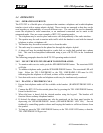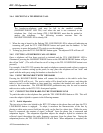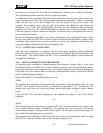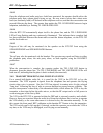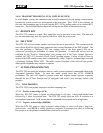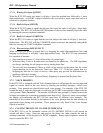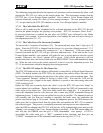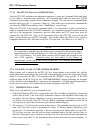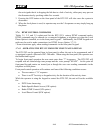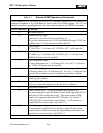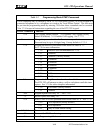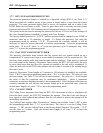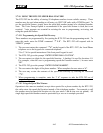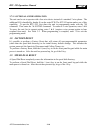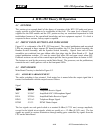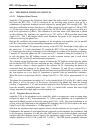
RTU-292 Operations Manual
the unit signals that it is dropping the link due to a lack of activity, either party may prevent
the disconnection by speaking within five seconds.
3. Pressing the OFF button on the front panel of the RTU-292 will also cause the system to
disconnect.
4. When the local phone is used, its operator may use the * # sequence or may simply hang up
the phone.
3.7.6 DTMF CONTROL COMMANDS
Tables 3-1, 3-2, and 3-3 explain and list the RTU-292’s various DTMF command modes.
DTMF commands may be entered via a connected telephone, a telephone set when the Local
Phone Option is installed, or via the front panel keypad*. Additionally, the DTMF keypad on a
radio may be used to make connections (see DTMF Access Option, 3.7.11).
* Some restrictions apply when sending commands via the front panel keypad:
3.7.6.1 OPERATING THE RTU-292 FROM THE FRONT PANEL KEYPAD
The RTU-292 can be operated from its front panel to allow the unit to be programmed, and if
so equipped, control a Motorola URC-200 radio. When using the front panel, the operator uses
the handset and keypad.
To begin front panel operation the user must enter three "*" keypresses. The RTU-292 will
respond with an Acknowledge tone prompt and the voice prompt "READY". At this point all
front panel keypad entries are treated just as though the user were sending commands via the
telephone or local phone.
Front panel control operation will continue until one of the following conditions occurs:
• The user enters a "*#" sequence.
• There is no PTT activity or keypad activity for the duration of the activity timer.
While the operator is using the keypad to control the RTU-292, the unit will not be available
for:
• PSTN Auto Answering.
• Radio Squelch Break Access (S/W option).
• Radio DTMF Control (S/W option).
• Local Phone Control (H/W option).
JPS Communications, Inc.
3-13



